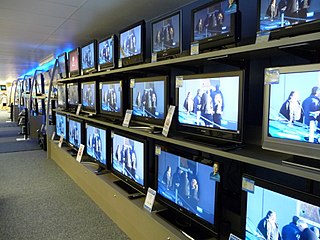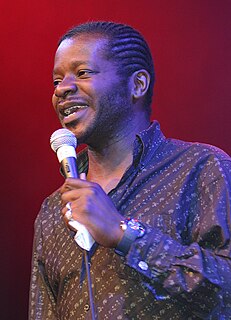This article needs additional citations for verification .(March 2015) (Learn how and when to remove this template message) |
| The Good Old Days | |
|---|---|
| Genre | Old Time Variety, Family, music hall |
| Starring | Leonard Sachs |
| Country of origin | UK |
| Original language(s) | English |
| No. of seasons | 30 |
| Production | |
| Producer(s) | Barney Colehan |
| Production location(s) | Leeds City Varieties Music Hall |
| Release | |
| Original network | BBC1 |
| First shown in | 1953 |
| Original release | 1953 – 1983 |
The Good Old Days is a BBC television light entertainment programme produced by Barney Colehan which ran from 1953 to 1983.
The British Broadcasting Corporation (BBC) is a British public service broadcaster. Its headquarters are at Broadcasting House in Westminster, London, and it is the world's oldest national broadcasting organisation and the largest broadcaster in the world by number of employees. It employs over 20,950 staff in total, 16,672 of whom are in public sector broadcasting. The total number of staff is 35,402 when part-time, flexible, and fixed-contract staff are included.

Television (TV), sometimes shortened to tele or telly, is a telecommunication medium used for transmitting moving images in monochrome, or in colour, and in two or three dimensions and sound. The term can refer to a television set, a television program, or the medium of television transmission. Television is a mass medium for advertising, entertainment and news.
Light entertainment encompasses a broad range of television and radio programming that includes comedies, variety shows, game shows, quiz shows and the like.
Contents
It was performed at the Leeds City Varieties and recreated an authentic atmosphere of the Victorian–Edwardian music hall with songs and sketches of the era performed by present-day performers in the style of the original artistes.

The Leeds City Varieties is a Grade II* listed music hall in Leeds, West Yorkshire, England.

In the history of the United Kingdom, the Victorian era was the period of Queen Victoria's reign, from 20 June 1837 until her death on 22 January 1901. The era followed the Georgian period and preceded the Edwardian period, and its later half overlaps with the first part of the Belle Époque era of Continental Europe. In terms of moral sensibilities and political reforms, this period began with the passage of the Reform Act 1832. There was a strong religious drive for higher moral standards led by the nonconformist churches, such as the Methodist, and the Evangelical wing of the established Church of England. Britain's relations with the other Great Powers were driven by the colonial antagonism of the Great Game with Russia, climaxing during the Crimean War; a Pax Britannica of international free trade was maintained by the country's naval and industrial supremacy. Britain embarked on global imperial expansion, particularly in Asia and Africa, which made the British Empire the largest empire in history. National self-confidence peaked.

Music hall is a type of British theatrical entertainment that was popular from the early Victorian era, beginning around 1850. It ended, arguably, after the First World War, when the halls rebranded their entertainment as Variety. Perceptions of a distinction in Britain between bold and scandalous Victorian Music Hall and subsequent, more respectable Variety differ. Music hall involved a mixture of popular songs, comedy, speciality acts, and variety entertainment. The term is derived from a type of theatre or venue in which such entertainment took place. American vaudeville was in some ways analogous to British music hall, featuring rousing songs and comic acts.
The audience dressed in period costume and joined in the singing, especially "Down at the Old Bull and Bush" which closed the show. The show was compered by Leonard Sachs, who introduced the acts from a desk situated at the side of the stage. In the course of its run it featured about 2,000 performers. Each show was up to an hour long. All acts were in the style of late Victorian/Edwardian stage acts. [1]

The Old Bull and Bush is a Grade II listed public house near Hampstead Heath in London which gave its name to the music hall song "Down at the old Bull and Bush" sung by Florrie Forde.

Leonard Meyer Sachs was a South African-born British actor.







